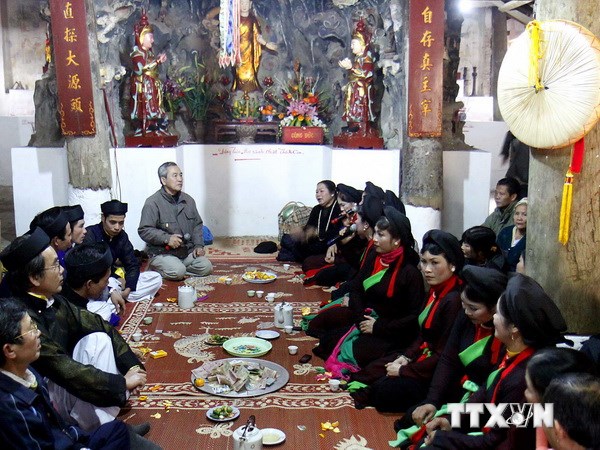The northern province of Bac Ninh is taking steps to restore two “Nha chua Quan ho” (houses where Quan ho singers gathered for training and performances) in Bac Ninh City and Tien Du district which are home to original “Quan ho” villages.

“Quan ho” (love duet singing) combines various elements, including music, lyrics, costume and a unique style of singing that reflects the intimate relationship between the singers and the distinctive culture of the region’s population, formerly known as Kinh Bac.
In the past, besides public performances at communal houses or temples, “quan ho” singers in each village had their own gathering place - the “Nha chua Quan ho” where they trained every night or received fellow singers from other villages. However, such places have almost disappeared at present.
Director of the provincial Department of Culture, Sports and Tourism Nguyen Van Phong said an investment of around 12 billion VND will be poured into the restoration of the houses, built in the old common style of houses in the region.
The move is part of the locality’s efforts to preserve and promote the values of this musical genre, which was recognised as an intangible cultural heritage of humanity in 2009 by UNESCO.
In addition to love duet singing, Bac Ninh is also home to “Ca Tru” ceremonial singing, which was listed by UNESCO as an intangible cultural heritage in need of urgent protection in 2009, and the Dau and But Thap pagodas, that were recently recognised as special national heritage sites.
It is considered the locality with the most festivals in Viet Nam , with 547 festive events held each year. Many festivals are famous throughout the country, such as Ba Chua Kho Festival, Lim Festival, Dau Pagoda Festival, Kinh Duong Vuong Festival and Phat Tich Pagoda Festival, which attract tens of thousands of visitors.